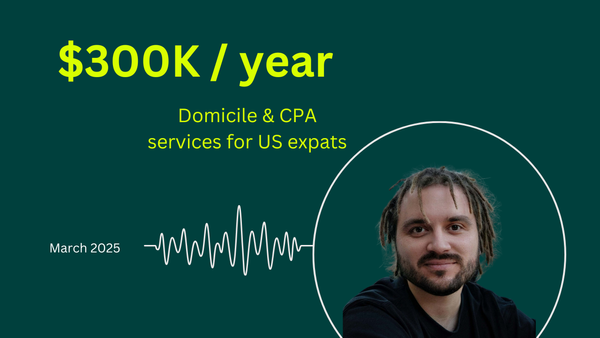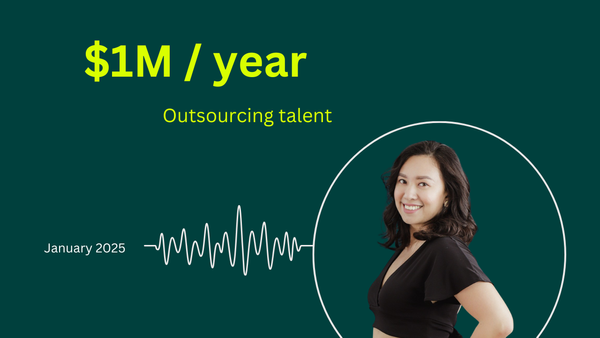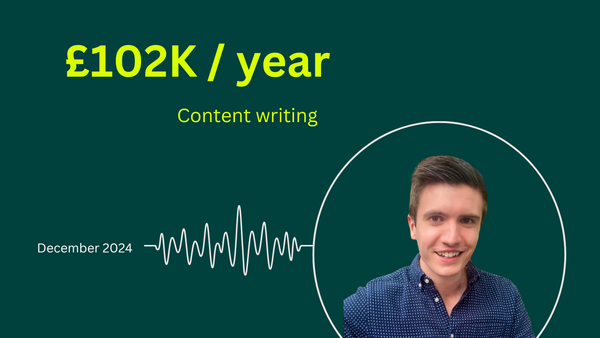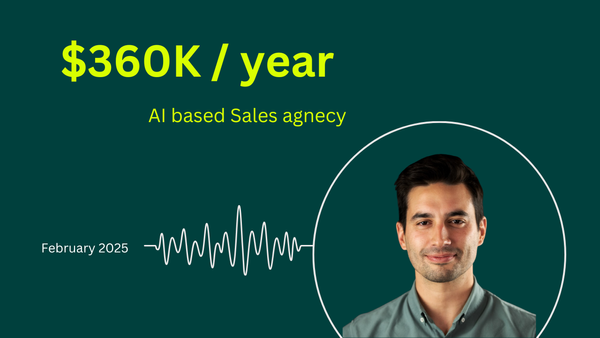Tim Hanson
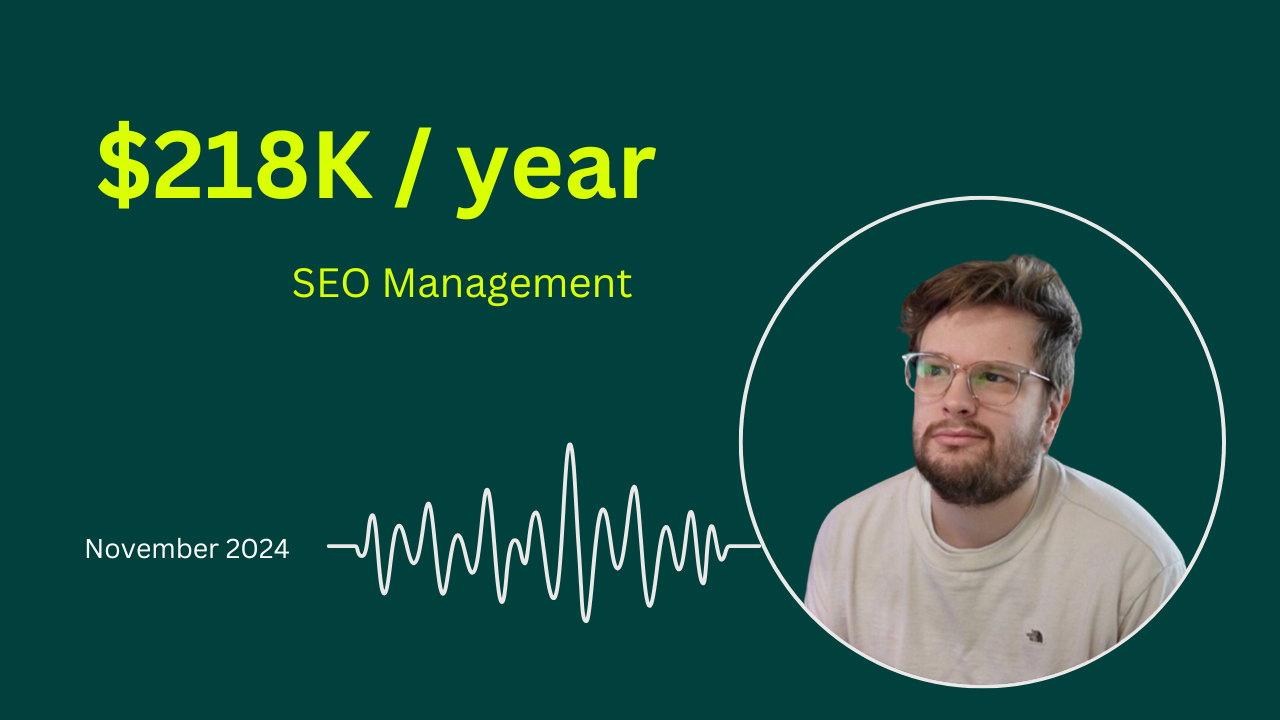
Summary:
Tim started earning more than £200K / year, after accidentally stumbling into the SEO space. From freelancing, to working as an employee at an agency, to consulting and currently building an AI SEO tool, Tim has done it all – Check it out here...
Tell us about yourself and the business you created?
Hey, I’m Tim and I’m one of the co-founders of a startup called Penfriend.ai.
Penfriend is an AI tool that focuses on blog posts, helping marketers create optimized content that feels personal. The objective is to make content that ranks, gets clicks, and converts while also sounding like the person who wrote it. I have built out over 75 unique prompts so our customers can plug and play and don’t need to spend hours trying and testing different things.
Prior to launching Penfriend, I’ve worked in the SEO space for 3 - 4 years. First as a freelancer where I earned around £13 000 / month as a 22 year old. Then I went to work for an SEO agency where I climbed the ranks to become the head of SEO. Following this, I transitioned into an SEO consultant and it was during this phase where I pivoted from a “done for you service” (like my freelance days) and into an “I’ll teach you service” - Instead of writing all the SEO myself, I taught my clients how to utilize SOP’s (standard operating procedures) so that they could be self-sustaining. I built out systems, best practices, guides etc. and trained my clients to manage their own SEO.
How did you come across your business idea?
I will go through each one individually for you guys…
Freelancing: I kinda fell into this accidentally. It started while I was working at a construction company. I spent 2 years building a 3D modeling tool that people said was “cool”, but it didn’t solve a specific problem that they faced. But now, because I spent so much time building this thing, the company I was working for at the time came to me and said: “You’ve been doing this for so bloody long, you better make it work. Go and sell it”. So I did. I tried all the outbound channels you can think of and none of them worked. I then tried putting some money behind it in the form of paid ads, which also didn’t work. SEO was kinda the last resort to be honest. I had never done it before but that’s where the university of YouTube comes into play… I started building out pages on their website and writing content. I loved the process so much that I ended up doing this after work and on weekends just for fun. That’s when I decided to offer SEO services to some clients and BOOM… the freelancing gig was born.
Threefiveoh: After freelancing for about 2 years, I then got offered a job at an SEO agency which I decided to take (dumb idea… I took a massive pay cut from earning £156K / year to £36K). Anyway, this did give me good experience as I was managing around 20 clients at any given time and so I learnt, tried and tested a lot. Eventually, after 4 years, I asked my bosses for a raise which they weren’t able to give. They then made me redundant and so I was left on my own and had to make something work. The clients I was working with (through the agency) approached me and said: “Tim, what the hell. We need you. Can’t you teach us how to do what you do?”. Luckily, I didn’t have a non-compete with my agency and so I was legally allowed to help these companies out. That’s when the idea of an “I’ll teach you service” came up and thus, Threefiveoh was born.
Penfriend: After running the consultancy for a while, this idea came from my own frustrations and experiences working with clients. One particular client spent over $150,000 on content in two months, and we skyrocketed her site from zero to 120,000 users a month. This is when I really saw the power of high-quality content at scale. This client (who is actually a co-founder of Penfriend now) came up to me one day and said: “Tim, can we not just turn your brain into a product? I can't keep spending this amount on content every month. It's insane”... So that’s where the idea of Penfriend came from. I have teamed up with my brother, who is a bloody good front end developer and then another dev who does the backend stuff.
What is the specific problem that your business solves?
The main issue that Penfriend addresses is helping companies produce high-quality, long-from content, at scale to rank on search engines and compete with bigger brands.
Customers often say, “AI doesn’t sound like me.” Penfriend fixes this by replicating a user’s voice in things like blogs and newsletters. Many marketing teams are small, with just one or two people, yet they’re expected to produce high-quality SEO content at scale. Penfriend helps these teams create optimized drafts quickly, giving them time to focus on edits and strategy.
Another challenge we solve is ensuring that we maintain a natural, human feel. We’ve designed Penfriend in a way that it produces content that passes originality tests, which is a massive thing that other tools are struggling to do.
How did you find your first customer(s)?
My first customers for Penfriend were consulting clients I had previously. It was a natural transition for them to go from paying me to consult, into paying me to get more done, faster, for cheaper.
We originally tested Penfriend with a small group of clients who used it daily and provided valuable feedback. Ever since then it’s been a constant cycle of testing, building, iterating and fixing.
How do you continue to find new customers on an ongoing basis?
Most of my audience lives on LinkedIn, so I’ve focused on engaging there. I also publish Penfriend content online and track its performance to refine our approach. Thus, I use our tool to rank on search engines (“proof is in the pudding” type of story).
Additionally, I maintain close relationships with customers, especially our annual subscribers. For these guys, I offer monthly calls to discuss content strategies and ensure they’re getting the most out of the product. These interactions help me stay connected to their needs while building trust and loyalty.
I continue to do my consulting on the side, purely because I love it. But Penfriend is my main focus nowadays.
What are your current revenue streams and how much do you earn from each?
Last year (2023), I earned £218,000 from consulting alone. I’ve scaled this back to focus on Penfriend. Currently I have 2 - 3 consulting clients who pay between £2,500 and £4,500 per month each. I keep these clients because I love it and because it kinda pays the bills for now, as I build up and scale Penfriend.
Penfriend’s primary revenue comes from subscriptions, we are still in the early stages and are refining and testing the product so we are keeping revenue numbers close to our chest for the time being.
What are your future plans with your business?
In the next three to six months, we’re launching new features and these updates are based on a year’s worth of customer feedback. My goal is to continue improving Penfriend by offering tools that address users’ specific pain points.
Long term, I want to expand Penfriend beyond blog posts to include other forms of content. Adapting tone of voice for social media, newsletters, and other platforms is a natural next step. I also aim to maintain strong customer relationships through consulting calls with annual subscribers in order to keep in touch with direct customer feedback.
In what ways has your life changed since starting your own business?
Running my own business has given me freedom, but it comes with its own challenges. I moved from London to Vancouver, sold my belongings, and now have the flexibility to work where I want. However, the stress is constant. Weekends and holidays feel like interruptions because there’s always work to do.
Despite this, I wouldn’t trade the stress of entrepreneurship for a traditional job. I’ve always hated working for someone else, and running Penfriend gives me control over my time and decisions.
What piece of advice would you give to someone wanting to start a business?
Just build something. Take the leap, even if it’s scary. It’s never as bad as you think it will be. Start with the smallest version of your idea and test it quickly. Failures teach valuable lessons, and it’s better to fail publicly than to never try.
One of my favorite quotes is, “It’s a privilege to fail in public.” Creating something—even if it’s small—can lead to pride and opportunities you wouldn’t have otherwise.
Where can people find you and your company?
You can find us at Penfriend.ai. I’m also active on LinkedIn, where I share updates and insights. For early bird pricing on new features, I’d suggest signing up for the Penfriend newsletter which is available through my LinkedIn bio or the website above.

